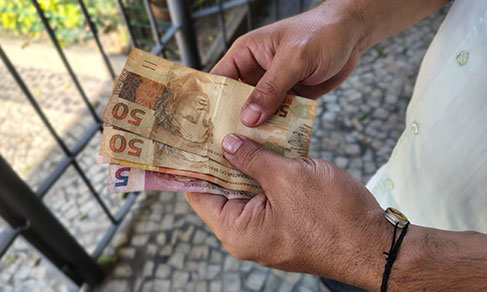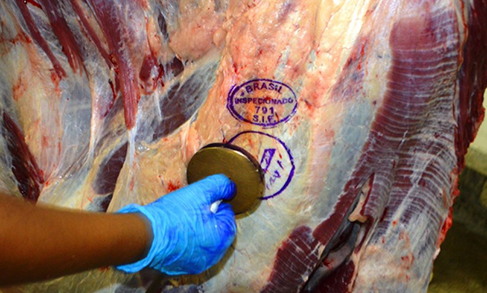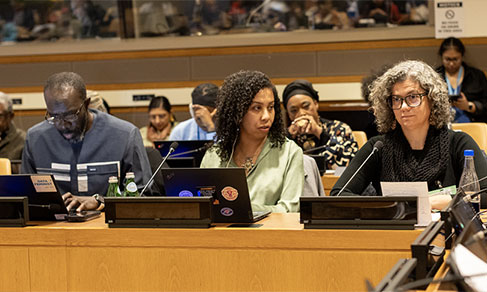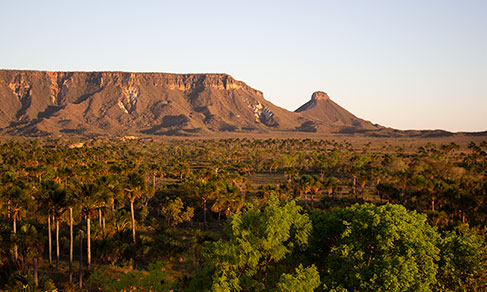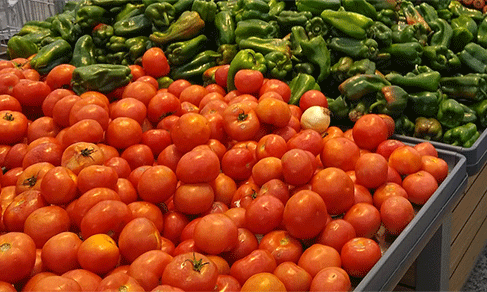Women find their place in coffee production in the state of Minas Gerais
March 20, 2018 09h00 AM | Last Updated: March 21, 2018 10h01 AM
A women’s cooperative from Minas Gerais has found its place in a segment marked by the presence of men, who make up about 90% of the producers, according to data from the 2006 Census of Agriculture. It was love for coffee that has brought together Leticia, Leila, Margarida, Patricia and Sandra, five women with very different life stories, who nowadays are part of the Association of Female Coffee Entrepreneurs from the Mantiqueira Mountain Ridge in Southern Minas Gerais State (Amecafé Mantiqueira).
The Association is formed by local female residents who work in the coffee production, ranging from pickers to sharecroppers and landowners. Leticia Albinati, age 56, says most members have small properties and harvest up to coffee bags per year. The group, officially established in August 2017, now gathers 62 women from eight cities in the region (Cambuquira, Campanha, Cristina, Heliodora, Jesuânia, Lambari, Pedralva and São Gonçalo do Sapucaí).
According to the Municipal Agricultural Survey (PAM), those cities produced about three million metric tons of coffee, 1.9% of the national output in 2016, with a special highlight to São Gonçalo do Sapucaí (11.8 thousand t), Cambuquira (11 thousand t) and Lambari (9.4 thousand t).
Segundo a pesquisa da Produção Agrícola Municipal (PAM), dos cerca de três milhões de toneladas de café produzidos no país em 2016, essas cidades representaram, juntas, 1,9% do total, com destaque para São Gonçalo do Sapucaí (11,8 mil t), Cambuquira (11 mil t) e Lambari (9,4 mil t).
A coffee producer for 12 years, Letícia, who was responsible for the initiative, says it all started in 2016, with only 12 coffee pickers. At the time, many of them used to keep the grains at home, did not have any qualification and were paid very little for their products. Touched by that situation, she arranged for the group to have some professional training in order to improve their working and living conditions. The news spread around little by little and now a lot of women want to join the group. “Today they feel as part of the coffee production chain, they can speak on equal terms with anyone else”. All the first 12 pickers are now in charge of their own coffee crops.
Besides social inclusion, there is also a financial reward. Amecafé Mantiqueira makes available for their members a seal of authenticity and a certificate which states that it is specialty coffee (graded above 82 points) produced by women – which adds value to the product and impacts its final price. When a bag of coffee was worth R$ 490, for example, the Amecafé bag was traded for R$ 540 because of the certificate. All the profit is returned to the producer, who is also in charge of the whole negotiation.
Earning respect
Childhood friend Leila Lemes, age 57, and Margarida Santos, age 67, are the first producers to have traded roasted coffee sealed by Amecafé Mantiqueira. Almost 30 years ago, when Brazil was facing a period of economic instability and the government stimulated the purchase of land, the pair bought a property in Cambuquira, their home town. Despite their lack of experience in planting, after some attempts they eventually succeeded in producing coffee and gradually earned the respect of the neighboring community.
“There was a lot of prejudice against us for we had come from the urban world, but also for being women”, says Margarida. The reputation of the pair was built upon the introduction of new agricultural techniques, as well as the respect and incentive to employees. The two friends proudly tell us they implemented notions of environmental protection, prohibited hunting and created a green area full of trees in their property. Nowadays they make a living out of their business and own two brands of coffee. Leila and Margarida monitor the whole process, from planting to sales, and say that the presence of united women can promote coffee production, and add value to it.
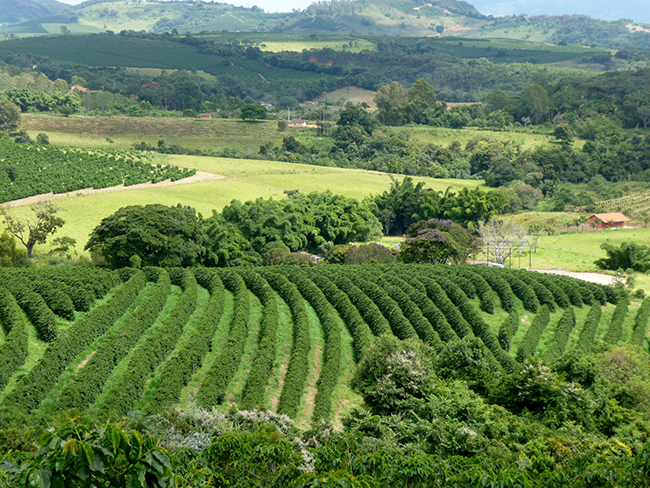
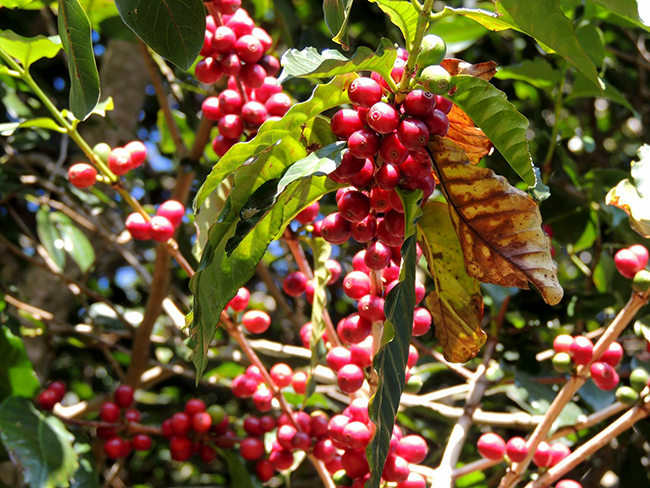
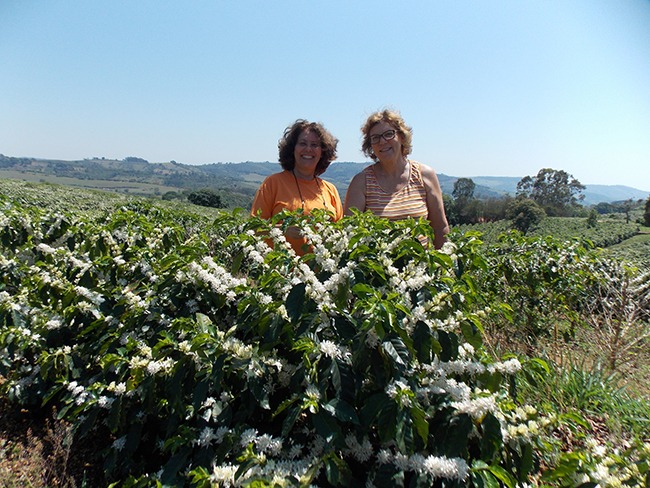
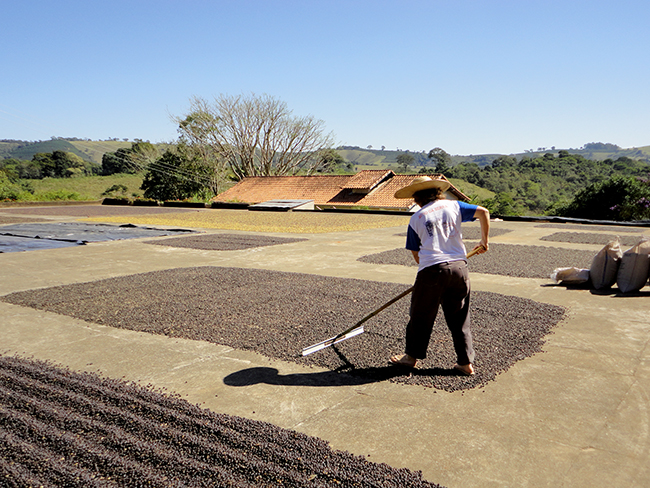
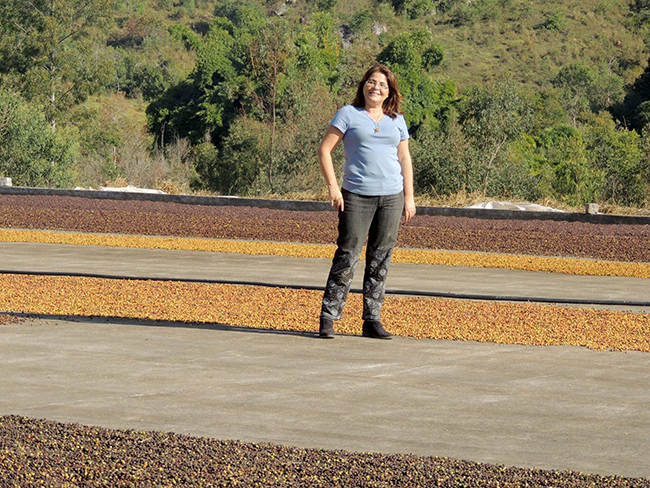
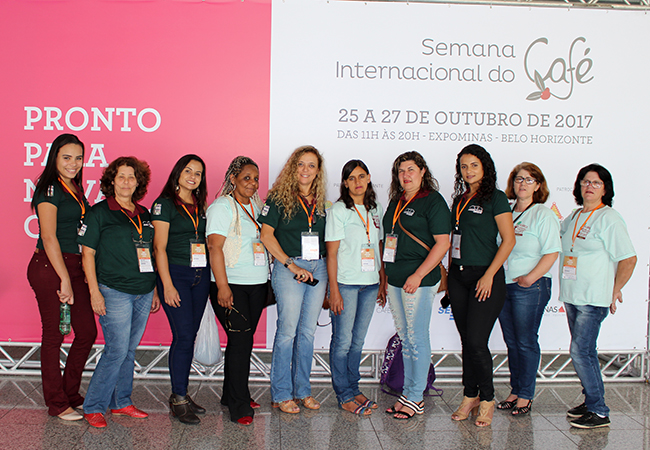
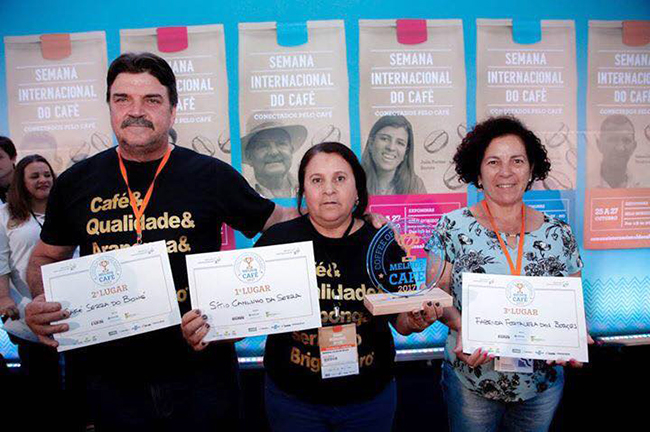
Overcoming resistance
Having been raised in a family of coffee producers in São Gonçalo do Sapucaí, did not make the life story of Patrícia Borges, aged 56, any easier. Her main challenge, however, was found at home. She became the administrator of part of the property inherited from her father, and nowadays works in partnership with some of her six siblings and her ex-spouse. “Before my father died, my mother used to think the female siblings (three of us) would not need the land, because we were all married and should live with our husbands. It was a real struggle to get our share, but the 50% she was entitled to were eventually given to my brothers.”
Besides that, Patrícia also faced the resistance of her brothers and employees, who would not accept orders from a woman. “We have been fighting prejudice with the Association, by showing everyone we work very well, we are more careful with the quality of coffee, and that we are always updated and more qualified each day.”
Staying in the countryside
Courage marks the history of Sandra Maria Momoeda, age 51. In 1998, this Brazilian woman decided to give up a stable life in Japan to plant coffee in São Gonçalo do Sapucaí. She fell in love with the area during a vacation trip and started to study the topic and to prepare for planting. Together with her three small children, the new producer rented some land and gave production a start. “We had to strive because I had no expertise. Things got better I as learned more and more”.
Sandra joined a group of women like Letícia and Patrícia to create Amecafé. “It is a very competitive market. In several properties only men are seen, but that figure is not present in our case. Women manage the crop by themselves", she highlights. Sandra thinks the Association proves that women build a a better future for their families without leaving the countryside, and, consenquently be successful in their personal and professional lives.
With the seal of Amecafé, she joined the field of direct sales, even exporting green coffee. “We want to show our kids that coffee is a possible business and can help prevent rural exodus. They do not want to be invisible as producers,” adds Sandra. Only the youngest of her three children, who is now 14, is interested in following in her footsteps.
An international trend
Sandra says the repercussions of those women’s work surprised her and says that coffee consumers have not only increased, but become more demanding as well: “now people want to know where the coffee they drink comes from. Women are more meticulous, in this respect; they treat and select the grain, so it is no surprise their product stands out and receives awards.” In addition to that, coffee production focuses on the preoccupation with sustainability and the history behind the products, which makes them unique.
Letícia points out that appreciation of female rural producers means giving voice to women, who are now responsible for innovation in the field. Nevertheless, she also highlights the importance of family union and of cooperative work to improve one’s quality of living. Besides investing in professional qualification, Amecafé intends to expand the sales of coffee produced by their members and is now trying to buy its own coffee roaster as well.




